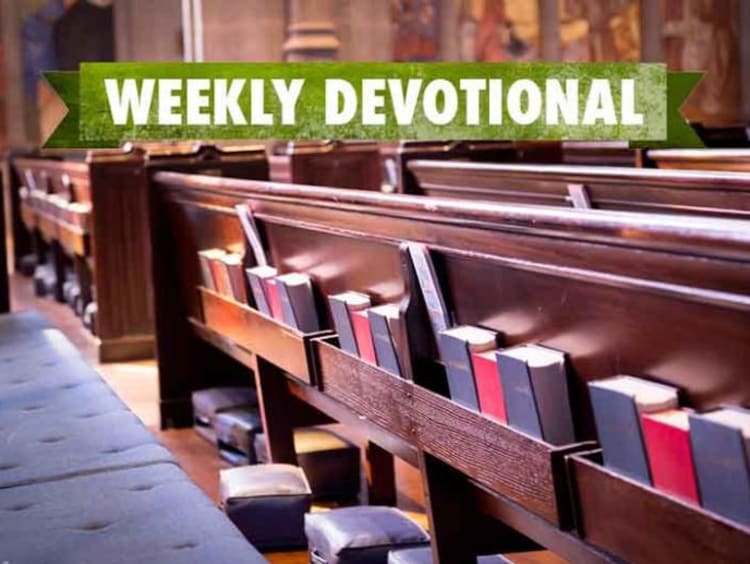Weekly Devotional: Jesus is the Truth
By Nathan R. Hale
Life Leader Manager

The claims of Christianity are powerful:
- A man named Jesus was God in the flesh.
- He died for your sins and was raised bodily from the dead, conquering death forever.
- A fresh start, forgiveness and personal transformation are all possible because of this.
- Real, absolute truth not only exists, but it is also accessible in meaningful ways with profound implications.
- You can live forever.
- You can know God, and God loves you, and He wants to show the world His love through His Church, which is the pillar and ground of all truth (1 Tim 3:15).
If this is true, though, why does said church seem so messed up?
Why can’t we get along? Why are there so many different groups that seem to think they have the corner on the truth and what it means to be a Christian? Some studies suggest there are tens of thousands of Christian denominations, all differing on various points of doctrine and practice.
Many people point to this as evidence that Christianity can’t be true, because Christians can’t even agree what actually is true!
In my opinion, those people have a legitimate criticism in hand, even if they take it too far (Christianity is the truth, whether or not people calling themselves Christians live out their faith the way they’re supposed to).
The fact that the Body of Christ on Earth is so fractured doctrinally and relationally is nothing short of a scandal in light of Jesus’ prayer “that they all may be one” (John 17:21).
Yet, it’s the reality we have to deal with.
The Body of Christ on Earth is broken.
How did we get here?
A (Brief) History Lesson
Although the early church was no stranger to personal conflict (see Peter and Paul, the Church at Corinth, etc.), it existed in relative unity in hierarchical structure for about 1,000 years.
Major doctrinal controversies and statements of faith were discussed and decided by consensus at gatherings called ecumenical councils after the pattern of the Jerusalem Council in Acts 15.
In 1054, the first major institutional split occurred between the Eastern and Western churches over the authority of the Roman bishop (called the pope) to make definitive changes in church doctrine apart from the conciliar process. The result of the Great Schism was a divided church: the Roman Catholic Church in the West and the Orthodox Church in the East.
Matters were further complicated during the time the Protestant Reformation, a movement that sought to address many abuses of power, theology and practice in the Western Church. Reformers like Martin Luther and John Calvin were simply unable to work from within existing church structures and so founded their own faith communities.
Unfortunately, although all Protestants were for reform, not all were for the same reform. As they sought to restore the church, disagreements on many secondary issues resulted in relational, doctrinal and institutional fractures that continue to this day.
It boils down to this: the Church is made up of people.
Fallen, sinful, broken people. Even though we are by God’s grace on a journey of becoming more like Him, we all sometimes allow politics and pride to get in the way.
There is Hope
The issues that divide Christians today are serious. What you believe about baptism matters. Where you find authority matters. What you believe about the Bible and its role matters. How you choose to worship God matters. What you believe about grace and works in the economy of salvation matters.
Yet, as important and divisive as each of these issues are, it’s equally important to realize an astounding degree of agreement, consensus and continuation of many core beliefs and practices. These include the Triune nature of God as Father, Son and Holy Spirit; the death and bodily resurrection of Jesus Christ; corporate worship; evangelism; the authority of the Bible as the revealed word of God; and more. Significant efforts are underway in many quarters to further mutual understanding between Christian groups.
The fact is that Christians are, by virtue of their faith in Christ and baptism into His church, supernaturally bound together in one body (Eph 4:4-5). Our job is not to create Christian unity, but exhibit the unity that already exists in the power of the Holy Spirit.
Unity of faith happens as we bear one another’s burdens in love, struggling with and not against one another to place Jesus in the highest place in our minds, hearts and communities.
Even though looking out over the landscape of Christian denominations and denominationalism can be discouraging, don’t lose heart! Jesus isn’t going to let us go on this way forever:
Husbands, love your wives, just as Christ loved the church and gave Himself up for her to make her holy, cleansing her by the washing with water through the word, and to present her to Himself as a radiant church, without stain or wrinkle or any other blemish, but holy and blameless (Eph 5:25-27).
There is hope, and His name is Jesus.
Join in the discussion by commenting below. Want to hear more about this topic? Check out this week’s Trending Faith, where Grand Canyon University Pastor Tim Griffin and Dean of the College of Theology Jason Hiles, PhD, answer this question.
The views and opinions expressed in this article are those of the author’s and do not necessarily reflect the official policy or position of Grand Canyon University. Any sources cited were accurate as of the publish date.


